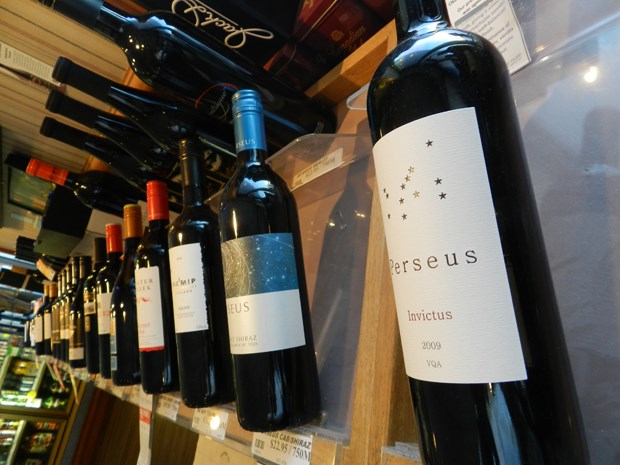Make room in your grocery shopping cart beside the bread, milk and eggs for a bottle of wine and a six-pack.
That could be the future as Richmond-Steveston MLA John Yap announced one of his recommendations from his B.C. Liquor Policy Review was to allow grocery stores to sell alcohol.
“We wanted to signal to British Columbians that I’ve heard loud and clear their desire for more convenience, and that includes being able to pick up their favourite bottle of wine or six-pack of beer when they go and buy their groceries,” said Yap, following a press conference in Vancouver Thursday morning.
“I understand this is a major shift, but I believe based on the review the overwhelming interest and support from British Columbians that this is something we cannot ignore.”
The idea of expanding alcohol sales to grocery stores — while excluding convenience stores – is an expectation of the modern day consumer, he added.
“British Columbians lead busy lives and they want the convenience to purchase this product when they are shopping for their groceries,” said Yap, who concluded a three-month, province-wide consultation process Nov. 25 by handing in his report to Attorney General Suzanne Anton.
Concerned about how the recommendation may impact his business was Glenn Jensen who owns and operates Legends Pub and a separate private beer and wine store near a Save-On-Foods store in the Terra Nova area.
“If I have to compete with the likes of Safeway and Save-On-Foods, I’ll be crushed within a month,” Jensen said. “Those are massive chains, there’s no way I could compete, unless they enforce territorial rights and have those grocery stores which are located near private liquor stores buy the private liquor store’s licence.”
Jensen said most operators like him have sunk about $1 million to $1.5 million into their outlets — depending on sales levels — and a shift to allow grocery stores to compete side by side could render his licence to sell alcohol worthless.
“These are certainly interesting, or scary, times ahead,” Jensen said.
Yap said during the review process he heard those types of concerns from private liquor store operators.
“We want to respect the investment that many of these small to medium sized businesses have made by recommending the number of (liquor) licences be kept at the current level, and look at this as a phased in approach. This, I believe, will address some of their concerns.”
Paramount in Yap’s grocery store recommendation is addressing public health and safety issues, especially when it comes to how alcohol sales would be managed.
Yap said one method is setting up a store-within-a-store concept akin to those supermarkets that have name brand coffee bars, such as Starbucks, or pharmacies operating independently on their premises.
“My recommendation is to keep liquor products separate from groceries,” Yap said, adding “That would achieve what the public and the health and safety advocates have said is important, and to also minimize the risk of young people having undue access to alcohol.”
Michael McCoy, executive director for Touchstone Family Association, said a possible shift to making alcohol available in grocery stores is unwise.
“It’s opening the door. It’s the slippery slope,” he said. “You have to ask yourself, what is the purpose of doing this when 80 per cent of neglected or abandoned children in this country live in alcohol or drug-abusing households?
“Tell me, what is the added value here in allowing this?”
The grocery store concept also runs counter to the Centre for Addictions Research of BC’s recommendation that the province’s partial government monopoly on the sale and distribution of alcohol be maintained and given an explicit public health and safety mandate.
In a submission to the liquor policy review, the Victoria-based organization stated, “Alcohol monopolies make it easier to control retail prices, hours of operation, outlet density, the legal drinking age and alcohol promotions — all factors which significantly influence patterns of consumption and levels of harm in the community.”
The timeline for possible changes to B.C.’s liquor laws could see some recommendations requiring changes to legislation brought up in Victoria during the spring session in the B.C. Legislature.



